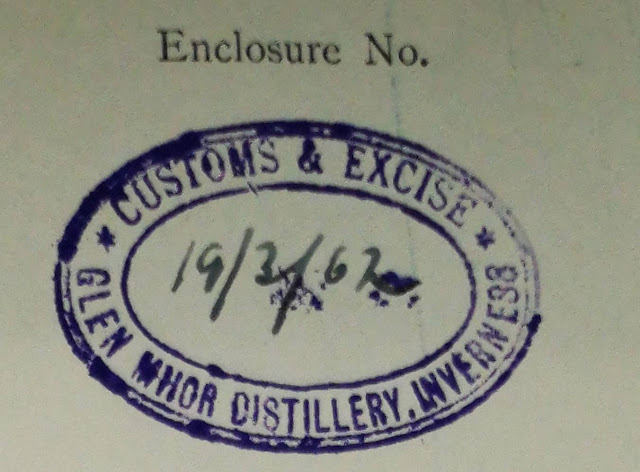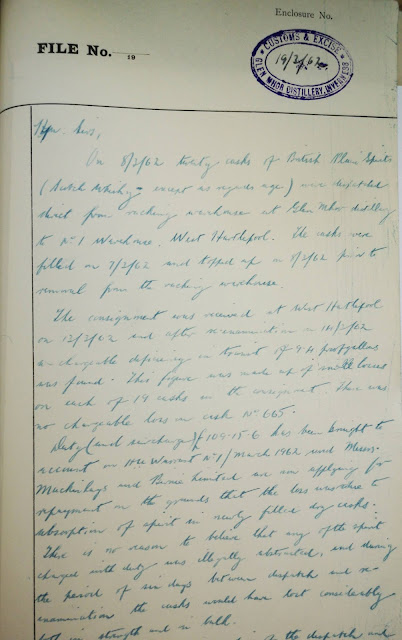Glen Mhor Logbook 19th March 1962
We've arrived in the swinging sixties at Glen Mhor the business of filling casks for clients continues as this entry shows.
What's interesting is that we have a gap of almost a decade in the logbook between this and the prior entry. An unfortunately period of calmness at Glen Mhor? We know that this was actually a period of new investment thanks to changes in the ownership structure. While log keeping and recording was at the heart of any Exciseman role, possibly the lack of entries underlines a new dawn and also the movement away from a fixed on site position. While Gilbert W. Peterkin and those before him embraced this logbook, a new generation seemingly utilised it less. For whatever reason, it was picked up again in 1962 and we have this informative entry that takes us on a cask journey.
For much of its existence, this was the major business of Glen Mhor and it was cited as a major reason for selling both distilleries in 1972 as the business of filling cask had become difficult. Competition was fierce and the larger corporations had built up a expansive portfolio of distilleries, so much so, that they didn't need to look elsewhere for their blending needs.
This entry concerns 20 casks and the loss of spirit in transit, but it also shows us where Glen Mhor was doing its trading. With the casks heading to Hartlepool, which isn't a town known for its whisky or blending operations, it seems reasonable to assume that we're discussing the port warehouses south of the border. This in turn suggests that the casks were being shipped abroad? And that's where the mystery begins, as who was shipping casks internationally? And one day we might find answers.
The entry itself reads as:
'Dear Sirs
On 8/3/62 twenty casks of British Plain Spirits (Scotch Whisky except as regards age) were dispatched direct from racking warehouse at Glen Mhor Distillery to No.1 Warehouse, West Hartlepool. The casks were filled on 7/3/62 and topped up on 8/3/62 prior to removal from the racking warehouse.
The consignment was received at West Hartlepool on 13/3/62 and after examination on 14/3/62 a chargeable deficiency in transit of 9.4 proof gallons was found. This figure was made up of small losses on each of 19 casks in the consignment. There was no chargeable loss in cask no.665.
Duty (and surcharge) £109.15.6 has been brought to account on the warrant No.1/March 1962 and Messrs Mackinlays and Birnie Limited are now applying for repayment on the grounds that the loss was due to absorption of spirit in newly filled dry casks.
There is no reason to believe that any of the spirit charged with duty was illegally extracted, and during the period of six days between dispatch and re-examination the casks would have lost considerably both in strength and in bulk.
Traders application and ??? of the despatch and the certificate of receipt are in the enclosure envelope.
Submitted for consideration as to whether repayment of duty and surcharge may be made.
Yours obediently sent
?.Dawson, officer.'



Comments
Post a Comment